News
Dabiri-Erewa Hails Appointments Of Nigerians In Alberta
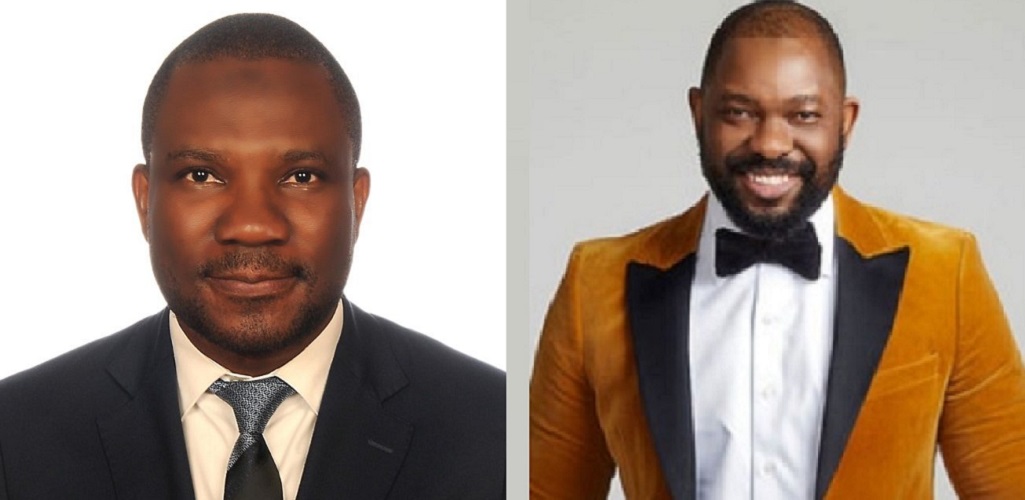
Hon. Abike Dabiri-Erewa, Chairman/CEO, Nigerians in Diaspora Commission (NIDCOM), has hailed the appointment of two great Nigerians, Dr Umar Oseni, as the first Nigerian new Secretary-General of the Organisation of Islamic Cooperation (OIC) Arbitration Centre and Dr Akolisa Ufodike as the Deputy Minister of Trade , Immigration and Multiculturalism in Alberta.
In a statement by Abdur-Rahman Balogun, Director of Media, Public Relations and Protocols of the Commission described the two Nigerians as excellent personalities who had brought glory and fame to Nigeria.
Dabiri-Erewa said both appointments show the pedigrees of Oseni and Ufodike as experts in their various fields with commitments to advancement in national and continental developments.
She urged them not to rest on their oars but continue to soar higher with the intention of motivating and mentoring more younger genrations looking up to them.
The NIDCOM boss, who said both appointments were well received, noted with delight that it perfectly fits into the Renewed Hope Agenda of President Bola Ahmed Tinubu in ensuring the upliftment of both Nigerians within and outside the country.
Dabiri-Erewa prayed for the successful tenure of both Oseni and Ufodike in their global assignments.
The 42-year old Edo- born Dr Umar Aimhanosi Oseni as an Assistant Professor of Law at the International Islamic University, mentored future talents and scholars who are currently Assistant and Associate Professors in various Universities across the world.
Apart from being a Harvard-certified negotiator and dispute resolution expert, he has consulted for numerous bodies in the areas of law and regulation of Islamic finance with a perfect blend of both significant academic and industry wide experience in Islamic finance law.
As one of the top three most prolific authors in Islamic finance and related areas in the whole world, with over 110 publications in Islamic finance, law and related areas, he has published widely in referred journals and books on Islamic finance and law.
Prior to his current position, he was an Executive Director for Legal and Compliance and later the Acting Chief Executive Officer of the same global intergovernmental body.
Dr. Umar Oseni is globally recognized as a leading scholar in Islamic finance law and has received numerous global awards to his credit.
In the same vein, Dr. Akolisa Ufodike got appointment as the Deputy Minister of Trade, Immigration and Multiculturalism in Alberta.
He is an assistant professor in the School of Administration at the Faculty of Liberal Arts and Professional Studies, York University, focusing on auditing.
His research interest is public Administration, Governance, Accountability, Diversity and Inclusion, Actor Networks and Public Sector.
*E-signed* .Abdur-Rahman Balogun Director of Media, Public Relations and Protocols Unit. NiDCOM, Abuja.
News
Enugu Reps PDP Caucus Welcomes LP Members To Its Fold
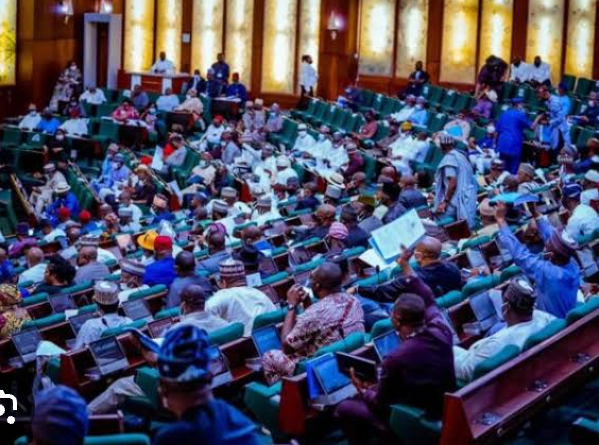
Members of the Enugu State Caucus of Peoples Democratic Party, ( PDP) in the House of Representatives, Rt. Hon. Nnolim Nnaji , Rt. Hon. Martins Oke and Hon Anayo Onwuegbu have welcomed Rt. Hon. Dennis Agbo and Hon. Chidi Mark Obeta of Labour Party, (LP) to the PDP fold.
They observed that the visionary leadership of Dr Peter Ndubuisi Mba in Enugu State has ignited massive decamps and unprecedented upsurge of membership of the Peoples Democratic Party, (PDP) in the state.
The caucus in a statement issued after the two members of the House of Representatives, Rt. Hon Dennis Agbo of Igboeze North/ Udenu and Chidi Mark Obeta who represents Nsukka/Igboeze South formally announced their transfer of membership to PDP at the resumption of House plenary on Tuesday said it was gladdening to receive them into the PDP fold.
They stressed that PDP in Enugu State was witnessing a great rebirth as a result of the transformative development agenda being unleashed in various sectors of the economy of the state by Governor Mba which has received global commendations.
The Enugu State caucus Leader, Rt. Hon. Nnolim Nnaji on behalf of the members further noted that Governor Mba’s investments in infrastructure, agro economy, and security among others have made Enugu State a tourist’s haven adding that with the good governance structure he has put in place, his second tenure would be a walkover.
News
2025 budget: Tinubu Seeks NASS Approval For N1.784trn FCT Statutory Budget
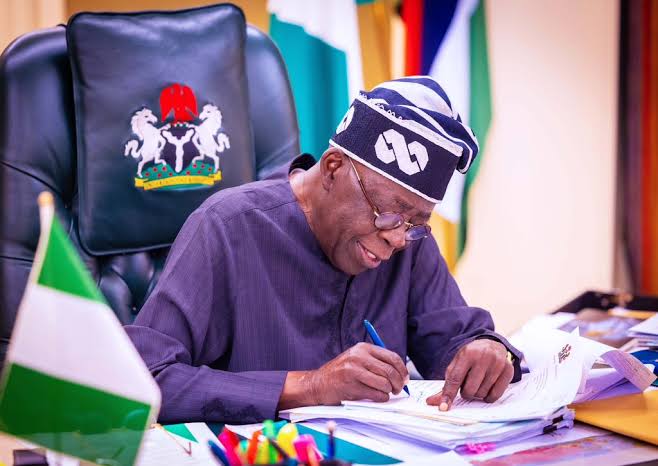
News
Finally , DTHA becomes one party assembly as Speaker, 21 other PDP members defect to APC
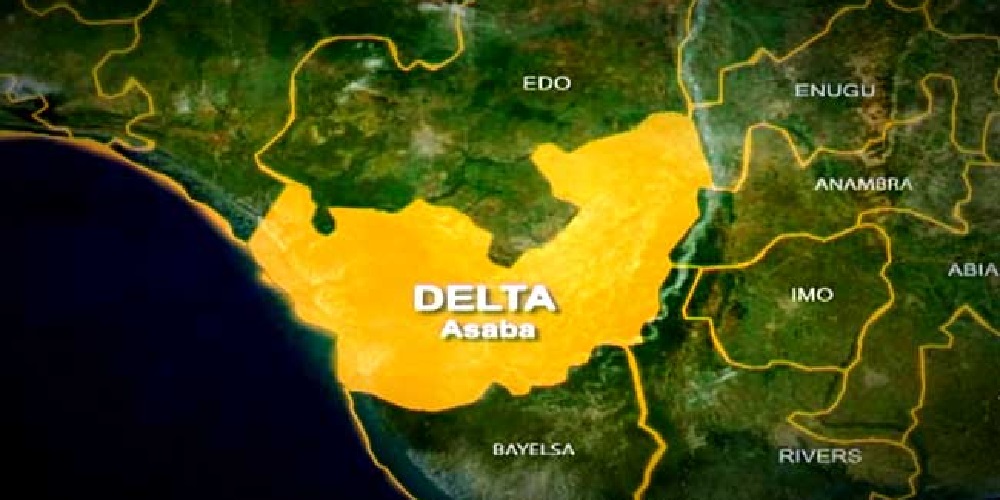
Speaker of the Delta State House of Assembly, Rt. Hon. Emomotimi Guwor, along with twenty-one other former members of the Peoples Democratic Party (PDP), elected into the Assembly has officially defected to the All Progressives Congress (APC), following a major realignment of political stakeholders across the state.
The defection of the twenty-two lawmakers has effectively transformed the Delta State House of Assembly into a one-party legislature, as the remaining seven members were originally elected on the ticket of the APC.
Announcing the development on Tuesday during the resumption of plenary after the Easter break, the Speaker stated that the decision was the result of extensive consultations with their constituents and political leaders throughout the state.
He emphasized that the move aligned with Section 109 of the 1999 Constitution, as amended.
While expressing appreciation to members for their contributions so far, Guwor urged the House to ensure the completion of all pending bills as the second legislative session nears its end.
He noted that the political shift towards the APC was in response to the realignment of stakeholders and the desire to align with the Federal Government under President Bola Tinubu’s leadership.
“The mass defection of members of the Peoples Democratic Party, led by Governor Sheriff Oborevwori, to the All Progressives Congress was made in the overall interest of Deltans and the state,” the Speaker said.
He explained that the decision followed extensive consultations held on April 23 and which cumulated on the official reception on April 28, 2025, at the Government House and the Cenotaph, respectively.
He said: “We are fully committed to partnering with the Federal Government to deliver greater development to Deltans.
“On behalf of the House, I commend the courage and visionary leadership of our Governor, Rt. Hon. Sheriff Oborevwori, in making this strategic and timely decision.
“As a legislative body, we stand with His Excellency in this endeavour. This renewed partnership between the state and Federal Government must be supported and allowed to flourish, so that we can begin to enjoy its benefits in the shortest possible time.”
He informed the House that he had received twenty-two letters (including his own) notifying of the change of party affiliation from the PDP to the APC.
The defection, he said, was driven by instability within the PDP’s national leadership and factional divisions within the South-South Zonal Executive Committee, leading to internal conflicts and disunity within the party.
Citing Section 109(1)(g) of the Constitution of the Federal Republic of Nigeria, 1999 (as amended), the Speaker affirmed the constitutional basis for the defection.
“With this action, the Delta State House of Assembly is now composed entirely of members from the All Progressives Congress. We thank our constituents for endorsing this progressive course of action”.
A motion to adopt the letters of party change was moved by the Majority Leader, Hon. Emeka Nwaobi, and seconded by Hon. Ferguson Onwo, who represents Isoko South II.
Speaking to journalists after the plenary, the Majority Leader, Hon Emeka Nwaobi reiterated that the defection was prompted by the crisis within the PDP.
“Our decision was based on the instability at the national level and the factionalization at the South-South level. Consequently, we chose to move to the ruling All Progressives Congress, in accordance with Section 109 of the 1999 Constitution, as amended,” he said.
-
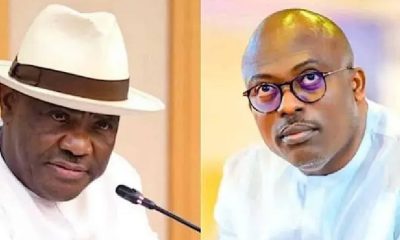
 Opinion8 hours ago
Opinion8 hours agoRIVERS, WIKE, FUBARA, AND THE WAY FORWARD
-

 Politics7 hours ago
Politics7 hours agoJust in: Delta PDP Reps members defect to APC
-

 News18 hours ago
News18 hours agoFULL STEPS: How to check 2025 JAMB results
-

 News18 hours ago
News18 hours agoMinistry denies awarding N13bn contracts without due process
-

 News12 hours ago
News12 hours agoVDM may be released on Tuesday
-

 News9 hours ago
News9 hours agoNANS Barricades Lagos-Ibadan Expressway Over Alleged NELFUND Mismanagement
-

 News9 hours ago
News9 hours agoCourt bans Nnamdi Kanu’s in-law from 3 proceedings over live streaming
-

 News18 hours ago
News18 hours agoCourt halts Abuja multi-million naira market project





